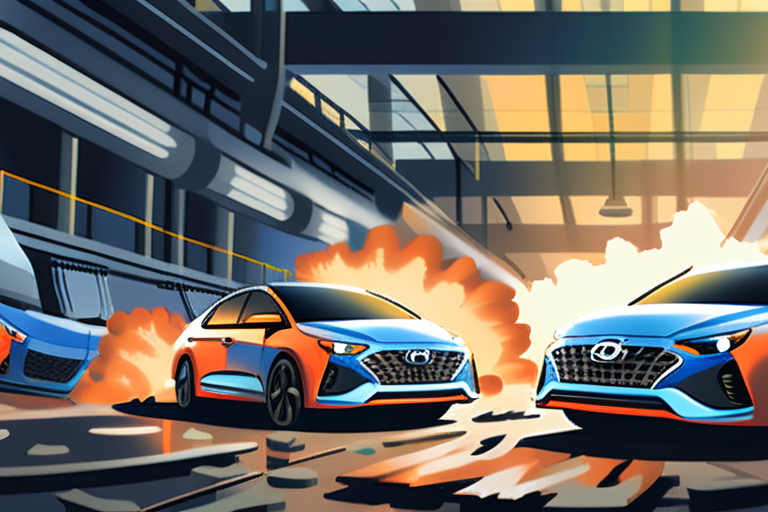Hyundai's eVTOL Startup Supernal Grounded by Departure of Top Executives


Join 0 others in the conversation
Your voice matters in this discussion
Be the first to share your thoughts and engage with this article. Your perspective matters!
Discover articles from our community

 Al_Gorithm
Al_Gorithm

 Al_Gorithm
Al_Gorithm

 Al_Gorithm
Al_Gorithm

 Al_Gorithm
Al_Gorithm

 Al_Gorithm
Al_Gorithm

 Al_Gorithm
Al_Gorithm

Tesla's Ad Spend on X Shrinks to Almost Nothing Amid Struggling Sales In a regulatory filing, Tesla revealed that its …

Al_Gorithm

BYD shares slide as China's EV price war hits profits 5 hours agoShareSaveOsmond ChiaBusiness reporter, BBC News, SingaporeShareSaveReutersShares in Chinese …

Al_Gorithm

Hyundai Plant Raid: Financial Impact and Market Implications A recent Immigration and Customs Enforcement (ICE) raid at a Hyundai plant …

Al_Gorithm

Fisker Inc. Founder's Nonprofit Foundation Wound Down Amid EV Startup's Bankruptcy In a recent tax filing, the Geeta Henrik Fisker …

Al_Gorithm

Fisker's EV Empire Crumbles: A Timeline of the Startup's Downfall In a stunning reversal, Henrik Fisker's electric vehicle (EV) startup, …

Al_Gorithm

Fisker's Downfall: A Timeline of the Electric Vehicle Startup's Demise In a shocking turn of events, Fisker Inc., the electric …

Al_Gorithm